The commitment of Bank of Commerce International (BCC) to the future prosperity of African countries was nowhere stronger than in the tiny landlocked Kingdom of Swaziland (renamed Eswatini in April 2018) and developing its in Southern Africa.
Swaziland, one of Africa's smallest developing nations, lies encircled by one of the world’s richest countries, South Africa. Despite the problems engendered by this proximity, it had managed to maintain an enviably stable economy since its independence in 1968.
Country information
Swaziland, bordered by South Africa to its north, west, south and southeast and Mozambique to its northeast, with a population of under one million in 1980, covers an area of around 6,700 square miles,
The terrain is a mountainous plateau.
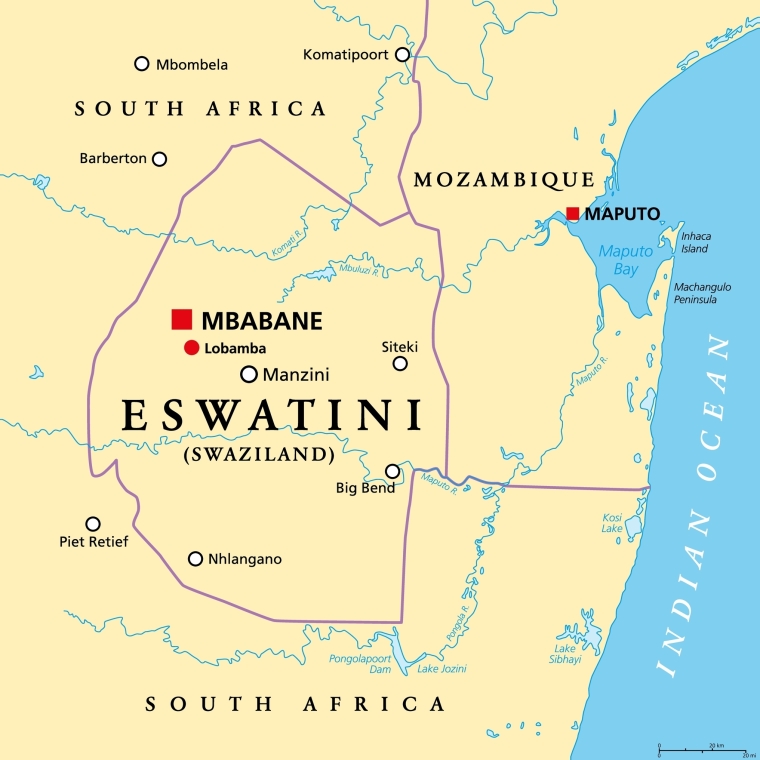
Swaziland is known for its game reserves with diverse wildlife including rihanos, lions, hippos and elephants.
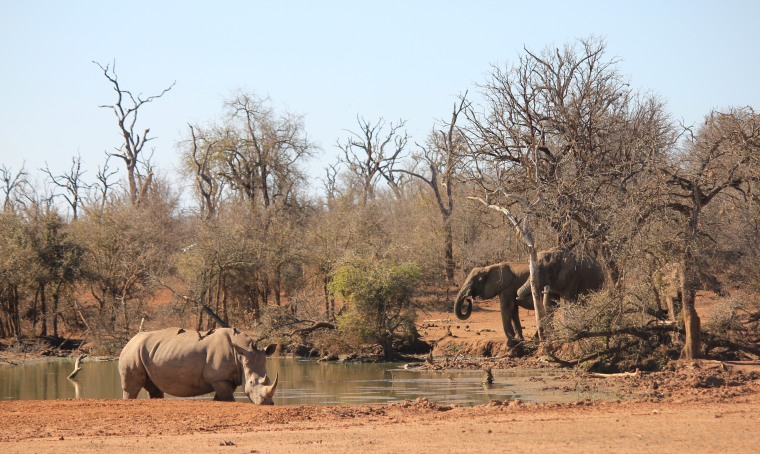
History
In mid-1800s, King Mswati was approached the British authorities in South Africa for assistance against Zulu raids into Swaziland. It also was during King Mswati's reign that the first whites (British and Europeans) settled in the country.
South Africans administered the Swazi interests from 1894 to 1902 and in 1903 the British assumed control after their victory against South Africa in the Second Anglo-Boer War. Swaziland became a British High Commission Territory under the rulership of a British Commissioner.
 Swaziland gained full independence on 6 September 1968. The official name was changed by King Mswati III from Kingdom of Swaziland to Kingdom of Eswatini in April 2018, mirroring the name commonly used in Swazi and a break from the country’s colonial past.
Swaziland gained full independence on 6 September 1968. The official name was changed by King Mswati III from Kingdom of Swaziland to Kingdom of Eswatini in April 2018, mirroring the name commonly used in Swazi and a break from the country’s colonial past.

The country has two capitals, Mbabane is the administrative capital but the legislative, traditional, and royal capital of is Lobamba. The important commercial city is Manzini.
Population and Language

The population of Swaziland in 1978 when BCCI’s opened its first branch was around 560,000.
The majority of the population are Swazi, the remainder Zulu and non-Africans.
The official languages are Siswati (a Nguni language related to the Swazi people Zulu language) and English.
The Swazi language was also native to parts of South Africa, Lesotho, and Mozambique.
Government and commercial business were conducted mainly in English.
Economy
Swaziland’s economy was based on agriculture, with the emphasis on sugar, forestry and citrus fruits. The country’s natural resources were asbestos, coal, diamonds, quarry stone, timber, talc.
By the 1960s the economy of Swaziland was making considerable progress, with the export of wood from the densely forested mountainous area in the west and of sugar from plantations in the more low-lying eastern regions.
Swaziland’s trade was very closely linked to the economy of South Africa. Other key trading partners were the United Kingdom, Europe and United States of America.
BCCI in Swaziland
The Bank of Credit and Commerce International (BCCI) had a determined policy to open branches throughout the African continent and it was in 1977 that BCC first became interested in a Swaziland branch. Barclays and the Standard Bank had local branches for many years, in which the Swaziland government had a substantial shareholding.
The King's Trust of King Sobouza showed particular interest in BCCI because of the bank’s growing presence in developing countries and providing finance for small traders and business enterprises.
BCCI was granted a trading licence in 1978 and established the Bank of Credit and Commerce International (Swaziland) Limited, with forty-five per cent share held by the King's Trust, and head office and main branch in Manzini, the main commercial city. BCCI was responsible for the management, banking operations and business development.
BCCI was responsible for the management, banking operations, business development and training the local staff.
BCCI Swaziland, in the short time, opened a second branch in Mbabane, the capital.
Over 95 per cent of the clients of BCCI Swaziland were Swazi citizens and companies. The bank had tried to place its funds in sectors that would increase the productivity and export potential of Swaziland. It had encouraged labour intensive industries in the country to provide maximum benefit to the common' people.
BCCI also conducted a considerable amount of business with other African countries on behalf of its customers, especially in the neighbouring countries. As a result, BCCI extended vital assistance in bringing to Swaziland skills and industries that had not existed previously in the country.
BCCI was also quite unique in Swaziland in that both branches operated one of the few 'drive-in' banking facilities to then be found on the African continent. The bank was also extending a special 'mobile banking service' designed to cover wide areas of the country for paying the wages of government employees unable to get to the cities regularly.
In 1981, both branches of BCCI in Swaziland employed staff totalling 70 people.
Manzini
Manzini, the largest of Swaziland's two cities, where the bank’s head office was also located, was about 25 miles from the capital Mbabane, where the second branch was located.
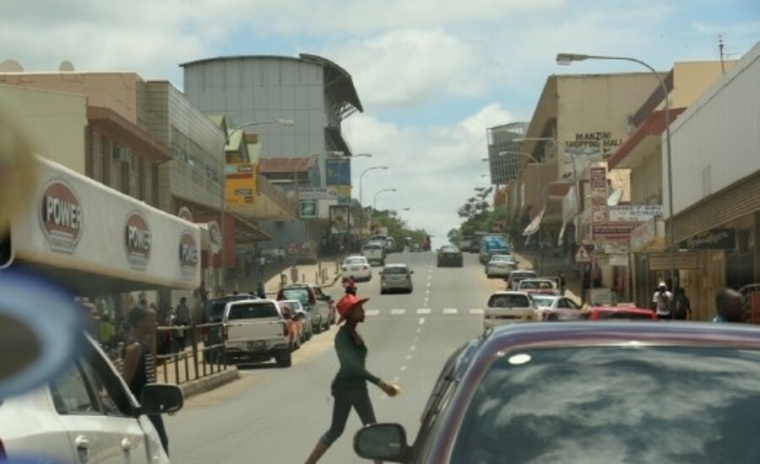
Manzini lies in the heavily populated Middle Veld region, where the nucleus of the population lived. The city was a hub for industry and agriculture.
Manzini branch was located at:
Nkoseluhlaza Street
PO Box 645
Manzini
Telephone: (268) 53181/5, 53187
Fax: (268) 53188
Telex: 2163 WD
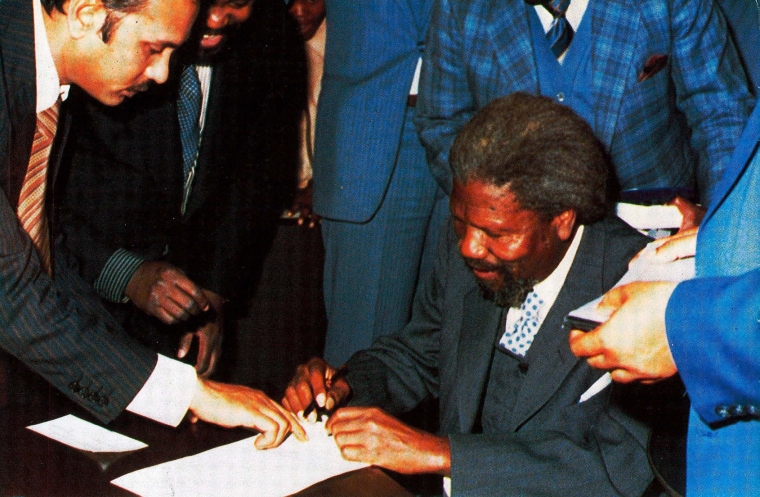
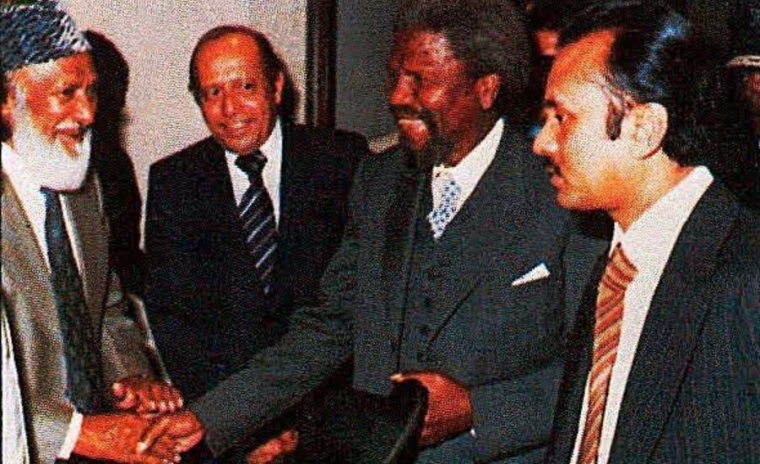
Mbabane
Mbabane was Swaziland’s capital city and had a magnificent setting, sur-rounded by the craggy backdrop of the Dlangeni Hills. It was the second largest city in the country after Manzini.
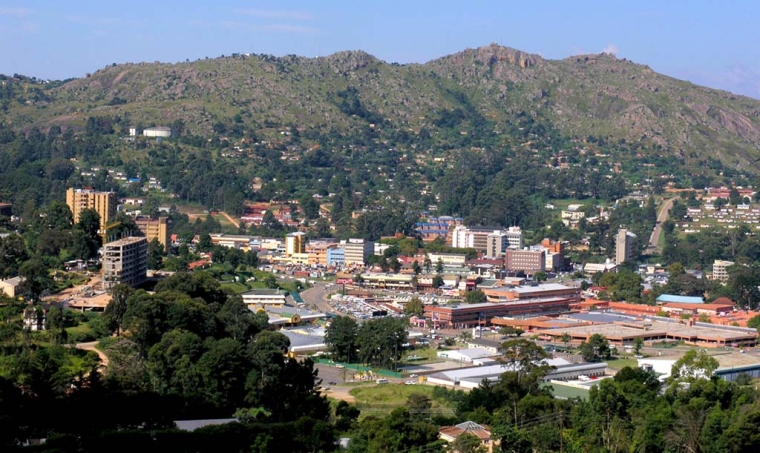
Early Mbabane was a small town comprised of a few schools, churches, and shops established by European During most of its pre-second World War history, Africans were not permitted to live in the town and were required to reside just outside the city’s borders or in outlying rural districts.
Following World War II (1939-1945), foreign investment in sugar and citrus fruits along with coal, forestry, and iron ore stimulated economic growth in Mbabane. The city also became the commercial centre for the surrounding agricultural and mining regions. Mbabane by that point was also the centre of a railroad network that connected nearby mines and Mozambique’s main port, Maputo.
Mbabane branch was located at:
Independence House
PO Box 1337
West Street
Mbabane
Telephone: (268) 22961/4
Fax: (268) 44535
Telex: 2162 WD
Financials Highlights 1989
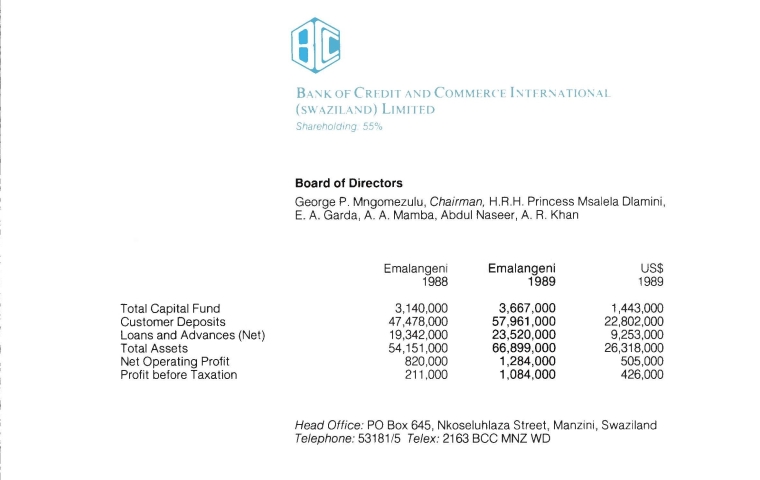
BCCI Closure
On 5 July 1991 the Bank of England and other regulators in the west decided to freeze BCCI Group's assets and abruptly shut down BCCI's operations worldwide.
The priority of the governments and central banks in some countries was to protect their people and the local operations of BCCI continued in a different name after the assets and liabilities were acquired by private investors or another bank.
The Central Bank of Swaziland took over BCCI Swaziland which remained open for business. The liquidators of BCCI reached an agreement with the Central Bank for sale of the business to Meridian Bank that had already taken over the branches of BIAO (Banque internationale pour l'Afrique occidentale in Africa.
The BCCI Group majority shareholders considered the abrupt action by western central banks to shut down BCCI in 1991 was unjustified when they already had detailed discussions with the Bank of England and other regulators on a restructuring plan and would have injected further capital, if required.
In a 24-page report not made public but sent to some 60 central bankers worldwide, the United Nations Center on Transnational Corporations said that by simply shutting down the 70-nation banking network that financed international trade of $18 billion a year, the economic damage fell hard-est on countries like Nigeria, Bangladesh and Zambia, where B.C.C.I. was an important institution. (New York Times, Feb 5, 1992)
